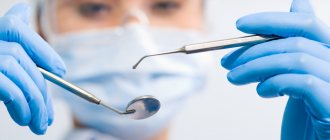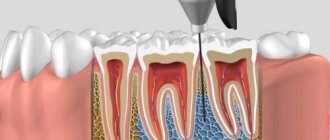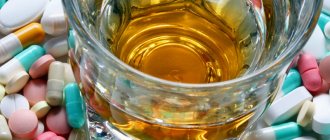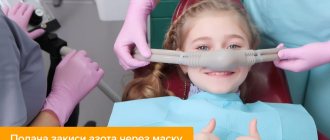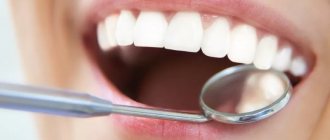Types of general anesthesia
Depending on the method of administering drugs for general anesthesia, inhalation and intravenous anesthesia are distinguished.
With inhalation anesthesia, the anesthetic enters the body through the respiratory tract; with intravenous anesthesia, it is injected into the bloodstream. A combined method involving inhalation and intravenous administration of the drug is actively used. To maintain external respiration, an endotracheal tube or laryngeal mask is used. The first method is called intubation anesthesia (or endotracheal), the second - mask. You will not need deeper knowledge about the specifics of an anesthesiologist’s work; it is much more important to understand how to properly prepare for anesthesia.
Good general anesthesia is the result of the consolidated efforts of the anesthesiologist and the patient. Therefore, we recommend that you read the next section very carefully.
Narcosis and alcohol
Patients are often interested in:
- “Is it possible to drink alcohol before surgery, for example mammoplasty, before anesthesia?”
- “How does alcohol affect the administration of anesthesia (“will he or will not take anesthesia?”, “how will it work?”)″.
- “When can you start drinking alcohol after anesthesia and the operation itself?”
These issues become most relevant during the New Year holidays, when it is time for corporate events, but also the peak of operational activity, because... Many patients plan to undergo surgery and recover during the New Year holidays, and they do not refuse to celebrate.
To understand the main essence of the issues, it is necessary to distinguish between the concepts: “chronic alcoholism (chronic, long-term alcoholization)” and “acute alcohol intoxication”, as well as “withdrawal syndrome”.
With chronic alcoholism, in the initial stage of alcoholism (the first years of use), the production of liver enzymes is stimulated, i.e. the liver works more actively, destroying alcohol and anesthesia drugs; accordingly, tolerance (immunity, resistance) arises both to alcohol and to doses of anesthesia drugs, which requires increased dosages of anesthesia drugs. Chronic alcoholics have a high probability of experiencing pronounced psycho-emotional arousal during induction of anesthesia (when entering anesthesia). In the later stages of alcoholism (7-10 years or more), a decrease in liver function and the activity of its enzymes occurs, because liver diseases develop - fatty degeneration and cirrhosis, respectively, tolerance to alcohol and to drugs for anesthesia decreases, so smaller doses of drugs for anesthesia are required. The doctor must carefully dose the medications based on clinical manifestations, etc. Recovery from anesthesia in such patients is protracted and alarming.
It should be noted that in chronic alcoholics, especially in the later stages of the disease, all vital systems of the body, metabolism and immunity suffer. Which also causes concern for the anesthesiologist-resuscitator when administering anesthesia to alcoholics.
In acute intoxication, alcohol potentiates the effect of anesthetic drugs, thereby enhancing their effect, which more strongly depresses the central nervous system (since the deactivation of drugs in the liver is reduced), and alcohol also causes depression (suppression) of the heart myocardium and dilates peripheral vessels, which increases hypotension, and accordingly, a decrease in blood pressure (blood pressure), and this requires intensive treatment. Moreover, recovery from anesthesia will be more difficult, and the development of post-anesthesia delirium (“delirium tremens”) is possible. Therefore, I do not recommend drinking alcohol before anesthesia and surgery in less than a day, but it is better to give up alcohol a few days before the upcoming mammoplasty under general anesthesia.
Withdrawal syndrome (from the Latin “abstinence”) or withdrawal state occurs when alcohol intake is completely stopped after prolonged, repeated or high-dose single consumption of alcohol. This condition is manifested by increased excitability, up to disorientation and hallucinations, tachycardia (increased heart rate), arterial hypertension (increased blood pressure), disturbances in heart rhythm and hemodynamics, and all this occurs against the background of metabolic disorders of the body and electrolyte imbalance (K, Na, Cl, Ca , Mg, etc.). All these changes require intensive treatment, where the administration of anesthesia drugs is only the 20th part of the work of an anesthesiologist-resuscitator, i.e. the administration of anesthesia itself is intensive therapy (fast and potent drugs are used, all through intravenous administration, etc., etc.), and even more so when administering anesthesia to patients intoxicated.
Patients also ask: “When can you start drinking after anesthesia and the operation itself?” If we talk about non-alcoholic drinks, then I allow drinking as soon as the patient’s consciousness, cough (protective) reflex, and adequate muscle tone have been restored. Well, this is obvious so that the patient understands what he is drinking, can hold the mug, and most importantly, so that he can clear his throat so as not to choke. Recovery occurs over a period of time: from several minutes to a couple of hours - it all depends on the type of anesthesia and its duration, as well as on the volume and severity of the operation. Everything is individual. For some, 10-15 minutes is enough, and for others, 1-2 hours is not enough. In any case, there must be clear indications for “offering a drink of water” to the patient. The same applies to eating solid food: as the patient recovers, we offer him to eat if he wishes.
Well, in conclusion, another frequent question: “When can you start drinking alcohol after anesthesia and surgery?” Modern drugs for short-acting anesthesia are quickly eliminated from the body, but the products of their metabolism (processing in the liver) can remain in the blood for up to a day, therefore, if you are “unbearable”, then at least a day after anesthesia you can consume alcohol, or better yet, a few days later .
Be healthy. Take care of your liver. Good luck!
Author: Anesthesiologist-resuscitator M.V. Bakaushin
Before general anesthesia: preparation
Preparation for surgery under anesthesia has a great influence on the effectiveness and safety of general anesthesia and the course of the postoperative period. You will have to undergo a comprehensive diagnostic examination, including detailed blood tests, coagulogram, and ECG. According to indications, consultations with narrow specialists are prescribed.
The presence of chronic diseases of the respiratory and cardiovascular systems is of great importance. Be sure to tell your doctor about the following diseases:
- bronchial asthma;
- chronic obstructive bronchitis;
- arterial hypertension;
- IHD;
- history of stroke.
Do not under any circumstances hide the fact that you have a history of chronic diseases and acute vascular events (heart attack, stroke). Not only the outcome of the operation, but also your life depends on this! Also provide your doctor with a complete list of medications you take, including “harmless” analgesics for headaches or menstrual pain.
As practice shows, excess weight negatively affects the rate of recovery after operations under general anesthesia. If you are planning plastic surgery in advance, pay attention to weight loss issues. It is advisable to quit smoking in about six months. If you have not done this, stop smoking a week before the operation, but you should not “quit” the day before anesthesia - this may complicate the rehabilitation period.
On the eve of the operation, pay special attention to nutrition and hydration. You should not drink alcohol 24 hours before plastic surgery. On the day before surgery, you should limit yourself to breakfast and lunch. On the day of surgery, eating and drinking is strictly prohibited!
Light seal: is it possible to smoke?
When can you eat after a light filling
? Can you smoke after a light filling?
Consequences of smoking after having a filling installed
Is it possible to smoke after a temporary filling?
Despite the fact that modern filling materials have excellent characteristics, the durability of the filling depends on the actions of the person himself. Of course, the doctor gives certain recommendations on what can and cannot be done immediately after dental treatment, but not everyone follows them. What consequences can this lead to and is it possible to smoke after a light filling?
After general anesthesia
Even after a good general anesthesia, in the first hours there is short-term confusion, disorientation in space and time, drowsiness, nausea, and dizziness. As the anesthetic drugs wear off, pain appears in the postoperative wound, but it is successfully relieved by the administration of strong anesthetics.
After general anesthesia with an endotracheal tube, patients complain of pain and sore throat caused by irritation of the mucous membrane of the upper respiratory tract, but this symptom, like nausea, passes very quickly. As a rule, patients feel well 3-4 hours after surgery, and on the second day they leave the clinic and return home.
You will need to refrain from eating and drinking if you are going to:
- General anesthesia. This type of anesthesia turns off the patient's consciousness. You see nothing, hear nothing, feel no pain, your muscles completely relax, and after the operation there are no memories of it. Some types of general anesthesia are given intravenously, sometimes it is a gas that you are given to inhale.
- Regional anesthesia. This type of anesthesia numbs any part of the patient's body, for example, a leg, arm, or lower half of the body. Typically, the numbing agent is given through a catheter or injection.
- Sedation. These are sedatives, after which a person relaxes and can fall asleep. Sedatives are injected into a vein using an injection or catheter.
Treatment under general anesthesia (anesthesia) - carried out only for special indications
Treatment under general anesthesia (Narcosis) is carried out only for special indications, when the risk justifies the result of a large-scale recovery process due to extensive surgery, a high degree of trauma and, accordingly, severe pain. For example, for jaw fractures, tumor removal. Sedation is safer.
Levin Dmitry Valerievich
Chief physician, Ph.D.
For minimally invasive dental procedures, local anesthetics are used for pain relief along with light sedation, which is the safest, does not require additional training and long-term restoration of all functions of the nervous system by our full-time neurologist.
After operation:
If you have had dental implants, you may experience some of the typical discomforts associated with any type of dental surgery. These may include:
- Swelling of the gums and face.
- Gum injury.
- Mobility of adjacent teeth.
- Pain at the implantation site.
- Minor bleeding.
- Bruises and bruises.
You may need painkillers and antibiotics. Follow the recommendations of the implantologist.
What must be observed after implantation:
- Brush your teeth with a soft brush before removing sutures
- Eat soft foods for 5-7 days. Do not eat hot, spicy or salty foods.
- Starting from the third day after surgery until the sutures are removed, you should rinse your mouth with a chlorhexidine solution twice a day (after brushing your teeth).
- Do not overheat in the sun or in a sauna.
- Do not engage in active sports.
- Do not smoke or reduce the number of cigarettes you smoke.
- Do not fly on an airplane, do not swim, do not dive for 2 weeks (especially important after sinus lift surgery).
- Do not blow your nose or sneeze with your mouth open (especially important after sinus lift surgery).
- If swelling, discomfort or other symptoms increase within a few days after surgery, or the temperature rises, contact your implant surgeon.
- After tooth extraction
- If you have had a tooth removed, you must take care of your oral cavity. By following certain recommendations, you will feel better and healing time will speed up.
Before surgery, it is necessary to carry out professional oral hygiene.
If the operation is performed with an anesthesiologist, you must come with an accompanying person, or the operation will be cancelled.
Recommendations for surgical treatment
After surgery, you may experience pain, which will go away as the tissue heals. Postoperative swelling or hematoma can also occur in areas adjacent to the surgical site, which is a natural consequence of surgery. There may be a slight increase in body temperature.
Please follow our recommendations!
Additional Tips
Avoid lifting heavy objects, bending over, playing sports, or taking hot baths for 5 to 7 days after surgery.
Within a few days, performance and the ability to drive may be reduced.
Remember to take medications prescribed by your dental surgeon after surgery.
We kindly ask you!
Appear for examination and removal of stitches 5-7 days after surgery, in agreement with your surgeon. You must immediately notify your surgeon or clinic administrator of any changes in your health.
Recommendations for caring for dental implants
The service life of the implant depends on:
- The correctness of the surgical and prosthetic stages carried out in the dental clinic.
- The patient's compliance with the recommendations given by the dentist immediately in the postoperative period and the period after implant prosthetics.
- Careful hygienic care of the “implant-crown” structure.
- Blood supply to bone tissue and gums in the area of implantation. (Smoking cigars and cigarettes has a very, very negative effect on peripheral blood circulation, which can even interfere with implant implantation.!!!)
Stopping bleeding:
To control bleeding, it is necessary to bite down on a gauze pad placed by the dentist in the oral cavity. The pressure promotes the formation of a blood clot in the socket. If you have heavy bleeding that has not stopped within an hour of tooth extraction, you should bite into a regular tea bag. Tannin in tea helps in the formation of blood clots. Hold the tampon or tea bag until the bleeding stops.
Additionally, cool the extraction area, apply a cold compress to the face in the area of tooth extraction for 10-15 minutes. at one o'clock. A slight bleeding on the first day after removal is normal.
